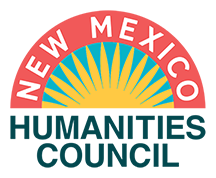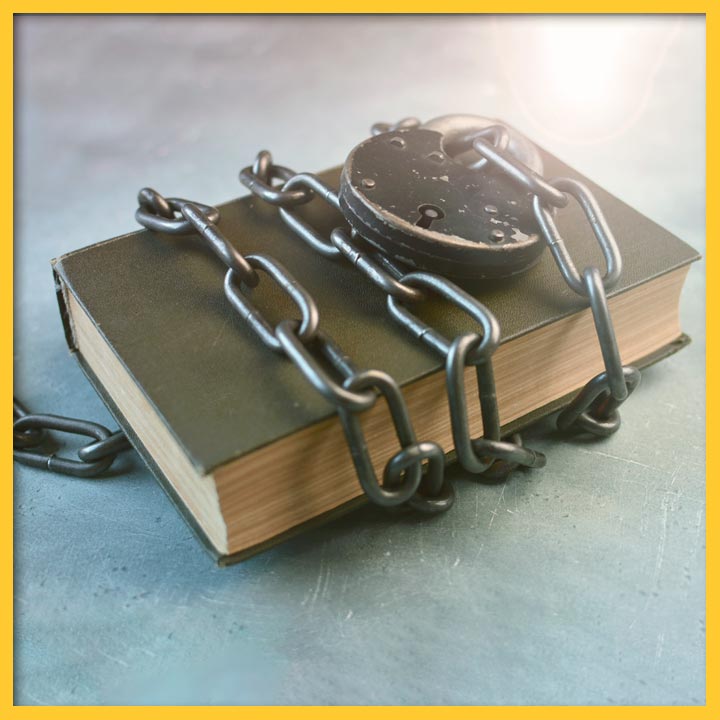
THE FREEDOM TO THINK OR WHY BOOK BANNING IS BORING
if I truly like to think of myself as having a growth mindset then I have to support that with experiences and ideas that challenge me to be a critical & creative thinker and to engage with a variety of people and materials.
Photo credit: Dmytro, stock.adobe.com
SHARE:
I value the freedom to think. It is a close bedfellow for me with other valuable intangibles, such as being able to accept, challenge and/or enjoy mystery, to cultivate wonder, learning and unlearning.
Book bans are a common form of censorship and attempt to control access to literary materials. Censorship is the intentional act of limitation of information and is somewhat surprisingly only a violation of The First Amendment in the United States if promulgated by the government (source). According to the American Library Association, “A challenge is an attempt to remove or restrict materials, based upon the objections of a person or group. A banning is the removal of those materials” (source).
Censorship and book bans seem to be based on the fear that exposure to material will cause someone to change or agree with that material automatically. This can be persuasive, but if we espouse freedom as one of our primary beliefs, why do we think we can — or ought to — control the inner worlds of other adults.
As someone who educates young people, this does not mean that I seek to give them access to anything and everything. It does mean that I see my job as instilling them with tools to be both critical and creative thinkers, capable of analysis and invention. It is their parents’ job to guide and inform their children’s decisions until they are mature enough to do so themselves. I do teach students some basics of media literacy, including how to define and recognize logical fallacies as well as provide tools to address them — especially those being used by marketers or anyone who seeks to control anyone else’s mind through the use of words and images.
I do assign novels for my middle school students to read, and if these have mature content, it is to illustrate the context and the arguments of the story. I usually explain this in writing to families before we begin reading as a class, but if a family or parents have an issue with a novel for any reason, their young person may read an alternate novel. This compromise may mean that I do not have as extensive lessons and materials prepared — or even that I have not yet read the alternate novel. But I am happy to do it, because families are entitled to make the final call and because this is an opportunity to build mutual respect.
I have taken parental feedback into consideration about books in my classroom library that I have not read and have removed one or two because the parent’s insight was sensitive, direct and well-reasoned. I also have books in my classroom library that I have not yet read because this seems to me to be a kind of tsundoku — the Japanese idea that collecting and surrounding oneself with unread books can be joyful. Having books near me represents possibility and reminds me that there is more in this world than I can ever possibly learn and it reminds me to keep attempting to broaden myself and to stay open to learning from anywhere and anyone. It reminds me that there are many ways to see the world and that this is enlivening and enriching.
I gave myself a challenge this summer to read at least one banned book. I chose Esperanza Rising because it was already in my classroom library (thanks to a former colleague who donated books when they moved). I read that it had been challenged at least twice (in Texas and North Carolina) as it “promoted illegal immigration” (source).
I began the book and was enjoying it for the historical context but then I encountered some superstitious elements that I didn’t know what to think about, so I stopped reading it. I may pick it up again and see what I think at that moment. I may begin again and this time skip over parts if they are not for me. These are part of what’s extremely cool about being an adult: we get to choose. We also get to inform our decisions with experience. While I cannot say that I’ve yet read the novel, I can say that I tried but didn’t finish, so I can’t really say that I completely know the story. I am not fully informed and that’s a legitimate expression. It does not make me ignorant, and it does not make me arrogant: It makes me accountable for having informed decisions. I am not simply going to dislike something because someone told me I should. I am going to deduce my own thoughts, and if I am not fully informed, I can always say “I don’t know.”
Even if I have to stray outside my comfort zone, it’s important, because to stay in a mindset of growth I have to be open to experiences and ideas that challenge me to be a critical and creative thinker and to engage with a variety of people and materials.
In my life I have been so surprised by wonderful,
PASA POR AQUÍ
ADDITIONAL BLOG ARTICLES

SPACESHIPS, RAY GUNS, AND LIFE LESSONS
By Melinda Snodgrass
“science fiction allows you to discuss difficult and fraught topics in what is a safe space and at arm’s length.”
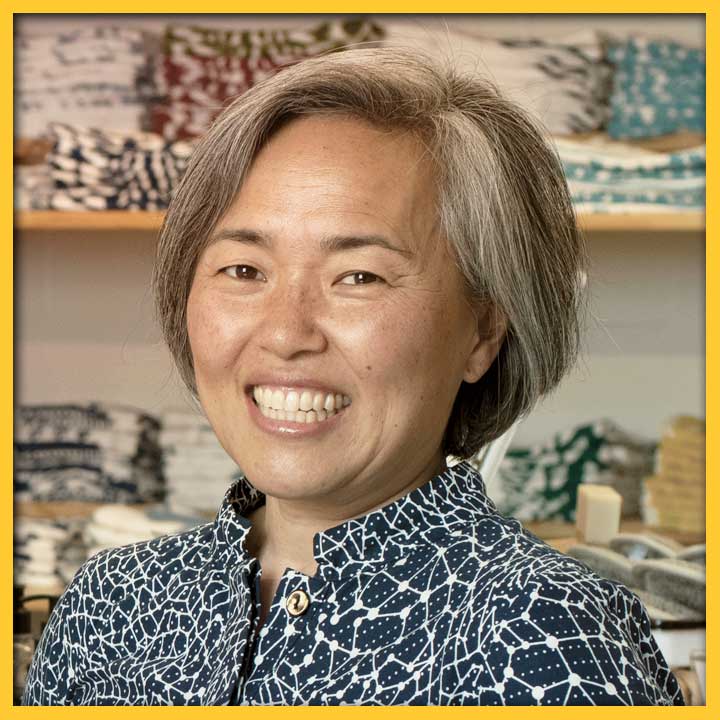
LITERATURE AS GUIDEPOSTS ON MY IMMIGRANT JOURNEY
By Kei Tsuzuki
“What I have learned from books is that there is no one story that explains the world to us or captures our identity entirely. There is power in the specificity of each of our stories…”
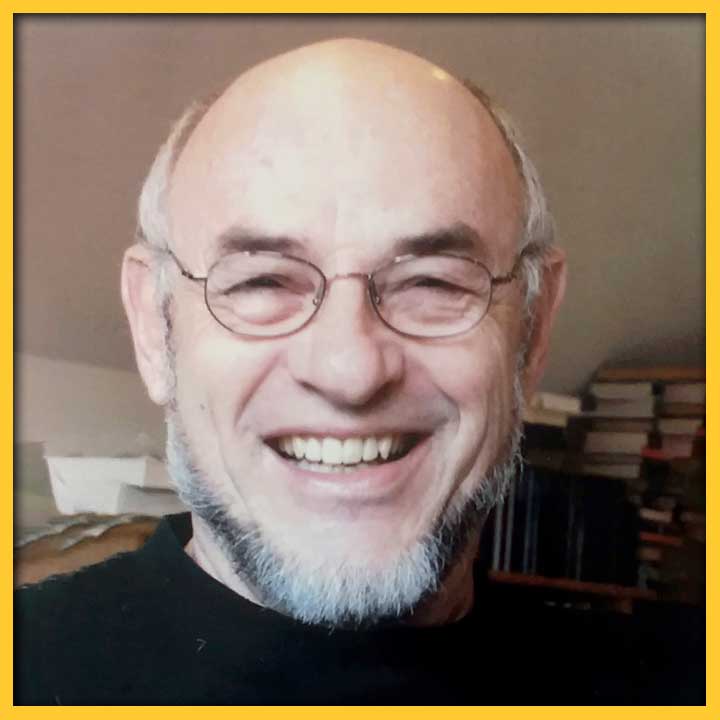
A DIFFERENCE-MAKING BOOK
By Richard Etulain
“Many authors hope their histories, novels or other writings will make a difference — that their works will catch readers’ attention and influence their thinking and actions.”
SHARE:
DISCLAIMER:
Any views, findings, conclusions or recommendations expressed in this blog post/article does not necessarily represent those of the New Mexico Humanities Council or the National Endowment for the Humanities.
ABOUT THE AUTHOR:
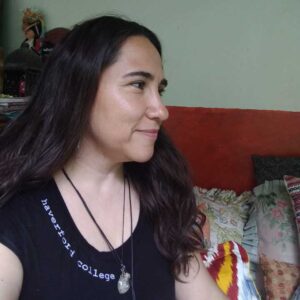
EMILY ROMERO
Emily Romero is a public schools educator about to enter her 8th year of teaching, specializing in middle school ELA & special education. She is a graduate of Haverford College with a BA in cultural anthropology. She was born and raised in Northern New Mexico and is a possibility-dweller who enjoys reading, learning & unlearning, making stuff, being active, resting, and being with friends & family
